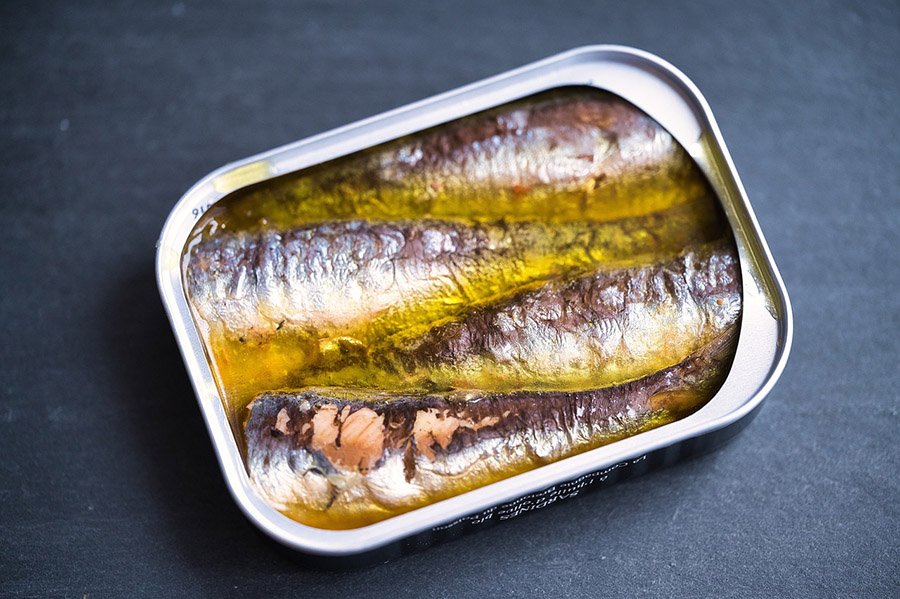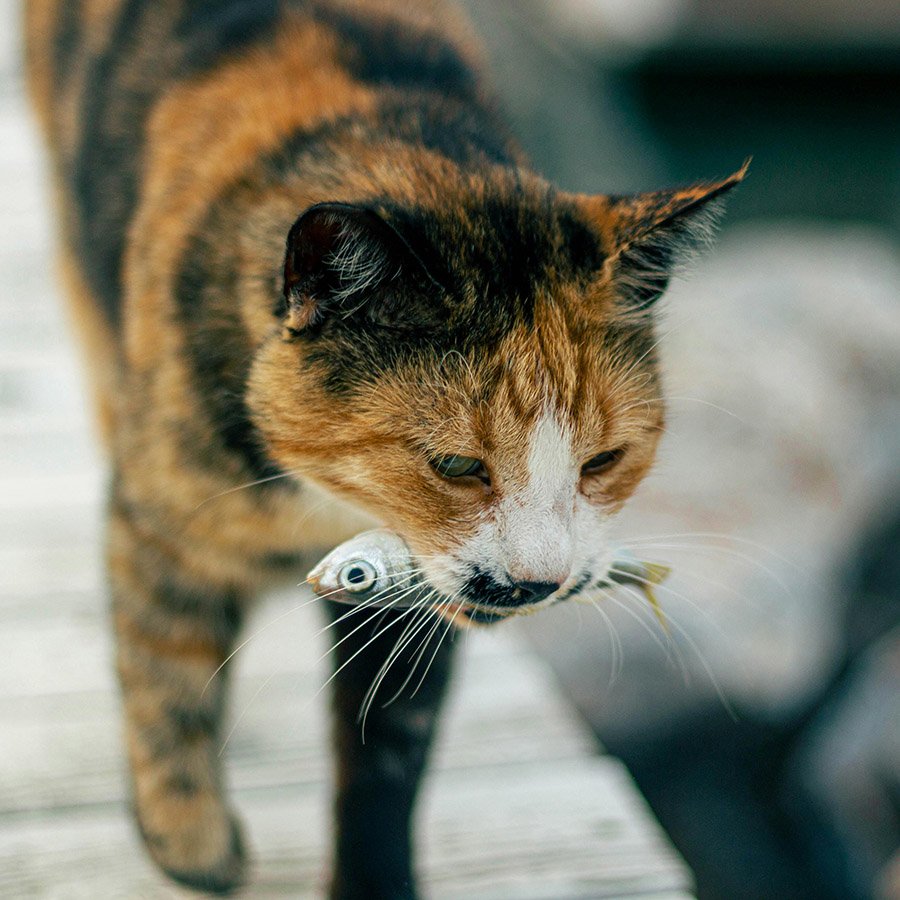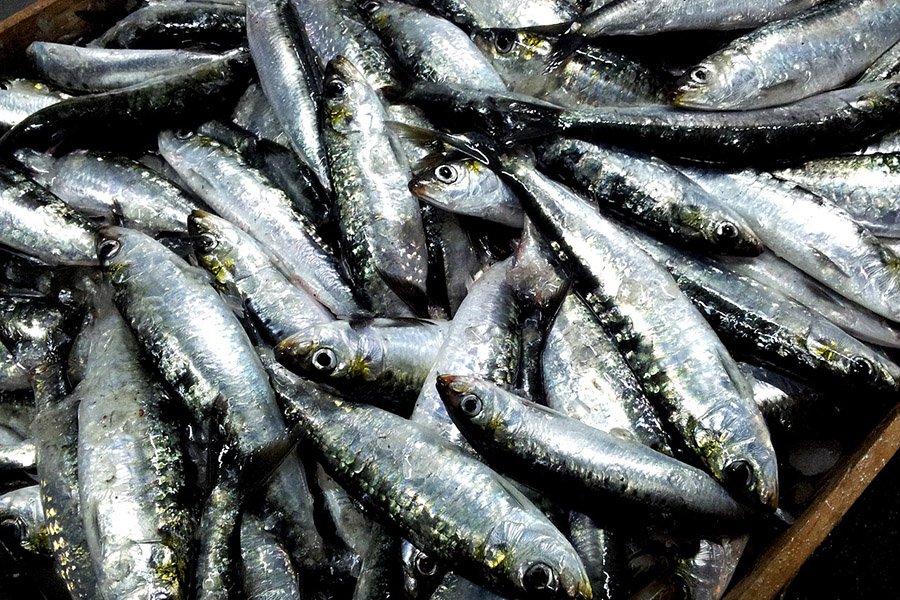Sardines are a popular snack among humans, but what about our feline friends? If you’re a cat owner wondering whether it’s safe to share sardines with your cat, the answer is generally yes—cats can eat sardines, and there are several health benefits to doing so. However, as with any treat, it’s important to understand the risks and how to feed them properly.
Nutritional Benefits of Sardines for Cats
Omega-3 Fatty Acids
Sardines are packed with omega-3 fatty acids, which are essential for your cat’s overall health. These fatty acids support heart health, improve brain function, and reduce inflammation throughout the body. For cats with arthritis or other inflammatory conditions, the anti-inflammatory properties of omega-3s can be particularly beneficial.
High-Quality Protein
As obligate carnivores, cats require a diet rich in animal protein to maintain muscle development and overall health. Sardines provide a high-quality source of protein that is necessary for building and repairing tissues, ensuring that your cat stays strong and healthy.
Vitamins and Minerals
Sardines are also an excellent source of several essential vitamins and minerals. These include Vitamin D, which aids in calcium absorption for strong bones and teeth, and Vitamin B12, which is important for energy production and maintaining a healthy nervous system. Additionally, sardines contain minerals such as calcium, phosphorus, potassium, and magnesium, all of which play vital roles in various bodily functions.

Potential Risks of Feeding Sardines to Cats
Mercury and Heavy Metals
One of the main concerns with feeding sardines to cats is the potential for mercury and other heavy metal contamination. While sardines are generally low in mercury compared to larger fish, regular consumption can still lead to the accumulation of these toxins in your cat’s body over time. To minimize this risk, it’s important to feed sardines in moderation and choose high-quality, sustainably sourced options.
Sodium Content
Many canned sardines are packed in oil or brine, which can be high in sodium. Excessive sodium intake can exacerbate kidney problems and increase blood pressure in cats. To avoid these issues, it’s best to choose sardines packed in water and limit the amount you feed to your cat.
Allergies and Intolerances
Some cats may be allergic or intolerant to fish, including sardines. Signs of an allergic reaction can include vomiting, diarrhea, and skin irritation. If you’re introducing sardines to your cat’s diet for the first time, start with a small amount and monitor for any adverse reactions.
How to Safely Feed Sardines to Your Cat
Choosing the Right Sardines
When selecting sardines for your cat, opt for those packed in water without added seasonings, such as garlic or onion, which are toxic to cats. Avoid sardines preserved in oil or brine, as these can be high in fat and sodium, which are not ideal for your cat’s health.
Preparation Tips
If you cannot find sardines packed in water, it’s important to rinse off the oil or salt before serving. Additionally, always remove the bones from the sardines to prevent choking hazards. While sardine bones are small and soft, they can still pose a risk, especially for smaller cats.
Frequency and Portion Control
Sardines should be treated as an occasional treat rather than a staple in your cat’s diet. Feeding sardines too frequently can lead to an excessive intake of certain nutrients, such as phosphorus, which can be harmful in large amounts. A good rule of thumb is to offer sardines once a week or even twice a month, with a small portion size like one teaspoon.

Benefits for Specific Health Conditions
Skin and Coat Health
The omega-3 fatty acids in sardines can work wonders for your cat’s skin and coat, helping to reduce dryness, itchiness, and inflammation. Cats prone to hairballs may also benefit from the improved coat health, as less shedding can result in fewer hairballs.
Support for Joint Health
Sardines are particularly beneficial for older cats or those with joint issues. The anti-inflammatory properties of omega-3 fatty acids can help reduce joint pain and improve mobility, making sardines a great supplement for cats with arthritis.
Conclusion
Sardines can be a healthy and delicious treat for your cat when fed properly. They offer numerous health benefits, including improved skin and coat health, support for joint function, and high-quality protein.
However, it’s important to feed them in moderation and choose the right type of sardines to avoid potential risks like mercury contamination, high sodium intake, and allergic reactions. By following these guidelines, you can safely incorporate sardines into your cat’s diet, giving them a tasty treat that also supports their overall health and well-being.








